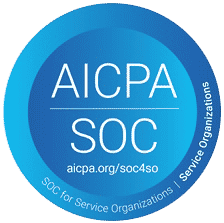In today’s rapidly evolving economic climate, numerous industries face a daunting challenge—the widening talent shortage. As seasoned professionals retire, there is a significant gap between the number of experienced workers leaving the workforce and the number of new entrants. The energy sector, in particular, is grappling with this talent scarcity. To combat this issue, qualifications become paramount in filling job vacancies and ensuring a skilled workforce to sustain industry growth.
Challenges in the Energy Skills Landscape
The energy industry encounters unique obstacles when it comes to talent acquisition and retention. Firstly, there is a lack of interest from qualified individuals due to negative stereotypes and misconceptions surrounding the industry. Breaking these preconceived notions and showcasing the industry’s potential is crucial to attracting and retaining top talent.
Secondly, a skills gap persists among new graduates and young professionals. Many emerging professionals lack the specialized training and practical experience required for key roles in the energy sector. Furthermore, limited awareness of industry opportunities further exacerbates the gap between demand and supply of skilled professionals.
The Role of Qualifications Tracking in Addressing the Skills Shortage
Qualifications tracking emerges as a powerful solution to address the skills shortage in energy industries. By implementing robust systems for tracking and assessing qualifications, organizations can enhance their recruitment and selection processes. This includes streamlining candidate screening based on specific qualifications, saving time and resources while ensuring that only the most qualified individuals proceed in the hiring process. Additionally, qualifications tracking aids in identifying transferable skills and potential for growth, allowing companies to nurture and train employees for higher-level roles.
Moreover, qualifications tracking enables the development of targeted training and upskilling programs. By assessing the existing skills of their workforce and identifying gaps, organizations can tailor training initiatives to address specific needs. This approach not only fills current skills gaps but also equips employees with the necessary qualifications to meet future industry demands.
Benefits of Qualifications Tracking for Energy Industries
1. Qualifications enforce compliance at the point of scheduling.
Compliance is essential in an enterprise organization to ensure safe, legal, and healthy operations of the business. Indeavor ensures proactive consideration of who is allowed to work each position via qualifications. Enforcing qualifications at the point of scheduling removes all ambiguity of whether an organization’s people are being assigned to positions in accordance with regulatory and corporate compliance.
2. Qualification visibility is critical to optimally staffing enterprise facilities.
Understanding the total available workforce is not enough when considering how to guarantee scalable and efficient operations of your facility. Qualifications provide critical insight into how this workforce is allowed to be utilized during production.
3. Qualifications are the first step in a digitalized, skill-focused transformation of an organization.
The ability to easily see who is able to work each position is foundational in the optimization of the workforce. Qualification gaps are a leading indicator of operational instability, and allow your organization to leverage Indeavor as not just a problem-solving, but also a problem-finding solution. Once qualification gaps have been identified, the focus can begin to shift to why these qualification gaps exist via deeper qualifications-related features such as employee skill management, skills-based qualifications, and competency level management.

Best Practices for Implementing Qualifications Tracking Systems
To effectively implement qualifications tracking systems, energy industry stakeholders can adopt the following best practices:
- Utilize technology and software solutions: Platforms like Indeavor offer comprehensive qualifications tracking solutions, streamlining the process and providing a centralized database for managing qualifications.
- Establish clear qualification criteria and standards: Clearly defining the qualifications and standards required for each role ensures consistency in assessing and selecting candidates.
Build a Highly Skilled Workforce With Indeavor
The skills shortage in the energy sector necessitates innovative solutions to bridge the gap between demand and supply of skilled professionals. Qualifications tracking emerges as a key strategy to address this challenge. By leveraging advanced technologies and implementing robust systems, companies can enhance their recruitment processes, develop targeted training initiatives, and ultimately build a highly skilled workforce. Industry stakeholders must embrace qualifications tracking, utilizing platforms like Indeavor, to ensure a prosperous future for energy industries and secure their position in the competitive market.
About the Author
Claire Pieper is the Marketing Communications Coordinator for Indeavor. She aims to share information to improve the customer journey. To learn more or get in touch, connect with Claire on LinkedIn.







